If you stop to think about how much time your cat spends grooming themselves and consider that they ingest a little hair each time, hairballs seem discouragingly inevitable. In extreme cases, hairballs can even become gastrointestinal blockages, so you’re likely wondering about how to help minimize potentially problematic hairballs. To help alleviate digestive and grooming-related concerns that cause excessive or especially painful hairballs for your beloved kitty, check out some invaluable tips on how to prevent hairballs in cats naturally below.

The 7 Home Remedies for Cat Hairballs
1. Regular Grooming
The first home remedy for cat hairballs is also the most basic. If you don’t regularly brush your cat, you need to start. Frequent hairballs may be a sign that your cat has too much loose hair clinging to their body. When they groom themselves, dead and loose fur clings to their tongue and gets consumed. The solution is simple: brush your cat to reduce the sheer volume of loose fur before it gets eaten and turned into a hairball.
Look for helpful tools like grooming gloves and cat de-shedders at your local pet store. These are specifically designed to help remove excess dead fur while making grooming a pleasant experience for your cat. Try starting with very short but frequent sessions, especially if your cat isn’t used to being brushed.
If you are looking for recommendations on the best cat brush, you should check out Hepper Cat Brush. You will hardly find different brush with so many pros - easy to clean, easy to use, durable and effective. Simply everything you need from a cat brush. Click here to order yours today.
- ONE PUSH RELEASE - This kitten brush / cat brush pops out fur with just a simple press, leaving you...
- DURABLE - Cat shedding can be a tough ordeal. Made of resilient ABS plastic and metal bristles with...
- COMFORTABLE - A cat fur brush with 60 degree angled, fine bristles and rubber stoppers will bring...
2. Increase Their Moisture Intake
If your cat is on a dry food diet, chances are good that there is a chronic dehydration state behind the hairball formation. Many cats are not effective water drinkers. Cats are actually meant to get their hydration from ingesting moisture-rich food, and they are not very effective at drinking water. Cats actually evolved this way; their ancestors would not have survived in the desert otherwise. Try incorporating moisture-rich foods into their daily regime. Fresh food is best, but wet food is also much higher in moisture content than dry food. Another way of enticing cats to drink more is by offering broths prepared without onion or garlic or by giving them access to a water fountain because cats are more naturally attracted to moving sources of water than stagnant ones.
3. Add Dietary Fiber
On the other end of the spectrum, very frequent hair accumulation in the stomach can occur when your cat doesn’t have enough fiber in their diet. Adding fiber might just be just the thing to help your cat’s bowels pass hairs. Hairball prevention cat food has increased fiber, but if you ask us, stick to the wet formulations rather than the dry ones.
Another option is adding some organic plain pumpkin to your cat’s meal. Pumpkin is an excellent source of fiber for your cat that will also add to their moisture ingestion.
4. Supplement With Lecithin
Part of the reason behind hair accumulation and hairball aggravation is the oily gunk that gets stuck in between the hairs and in your cat’s stomach mucosa. Lecithin works as an emulsifier to help remove this gunk, breaking and passing existing hairballs while preventing new hairball formation. Two great sources of lecithin are egg yolks and soybeans. Buy in-shell pasteurized eggs and incorporate about half a raw egg yolk into your cat’s daily meals. Please consider that this will account for about 27 extra calories, so either try to get that kitty moving or make the necessary dietary adjustments with a vet’s help.
Besides the benefit of lecithin, egg yolks are also a source of choline, a nutrient that aids gastrointestinal motility. Egg yolk lecithin is also available in supplement form. An experienced veterinarian can help you choose the best way to incorporate some lecithin into your cat’s diet.
Need veterinary advice but can't get to the clinic? Catster recommends PangoVet, our online veterinary service. Talk to a vet online and get the answers and advice you need for your cat without having to leave your living room — all at an affordable price!

5. Check Their Behavior
Cats normally groom themselves a lot but take it to new and even painful extremes when they’re stressed or anxious. Oftentimes, overgrooming is the reason a cat is predisposed to hairball problems. If this is the case, the issue needs to be addressed. A complete behavioral management plan, together with the necessary environmental adjustments, can help to redirect their aberrant overgrooming behavior.
Close observation will help you recognize the possible reasons behind your cat’s stress. Environmental enrichment and positive reinforcement methods are powerful tools to extinguish some aberrant behaviors. Overgrooming is a similar behavior to destructive chewing or digging in dogs, and you might need to get a professional behaviorist involved to help your cat overcome this problem.
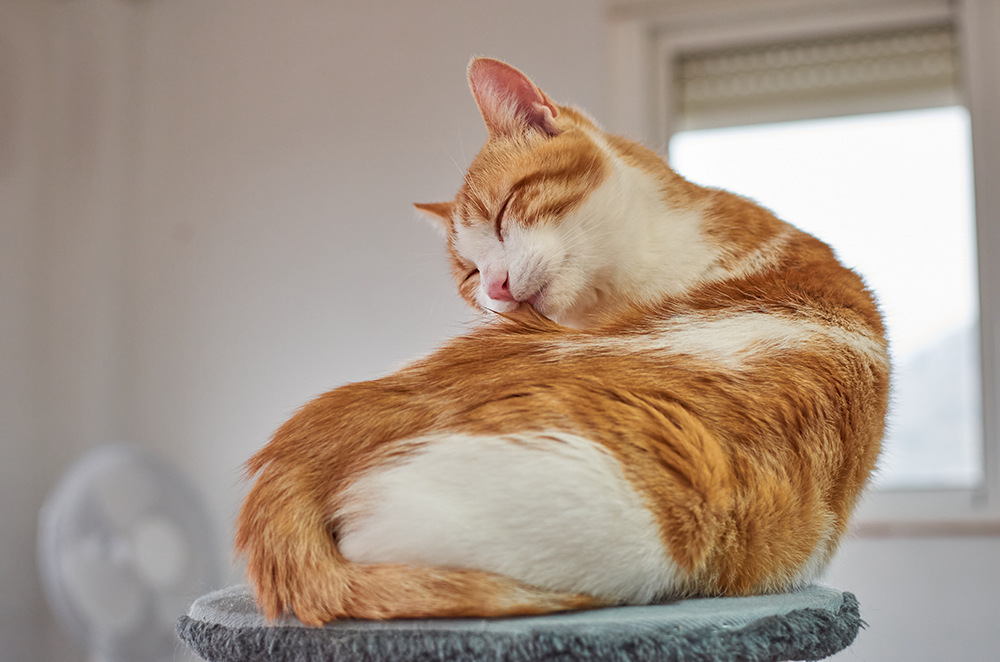
6. Grow Cat Grass
We don’t typically support cats eating your houseplants, but cat grass is a notable exception. Grass has fiber and is thought to help your cat throw up hairballs, and it’s very easy to grow small patches yourself for your cat to pursue as a healthy snack. Besides, cat grass is a great way to provide environmental enrichment and sensorial stimulation to your cat. A busy and entertained cat is less likely to overgroom.
7. Petroleum Jelly
Petroleum jelly is a common human product that can literally help smooth the passing of hairballs for your kitty. It is actually one of the ingredients in commercially available hairball remedies. Simply smear a tiny amount on your cat’s paw and watch them lick it. Just a small amount will lubricate their digestive tract, facilitating the passage of hairballs. While this old-school remedy is effective, we recommend using it sparingly and instead focusing on making the necessary changes to prevent hairball formation in your cat.
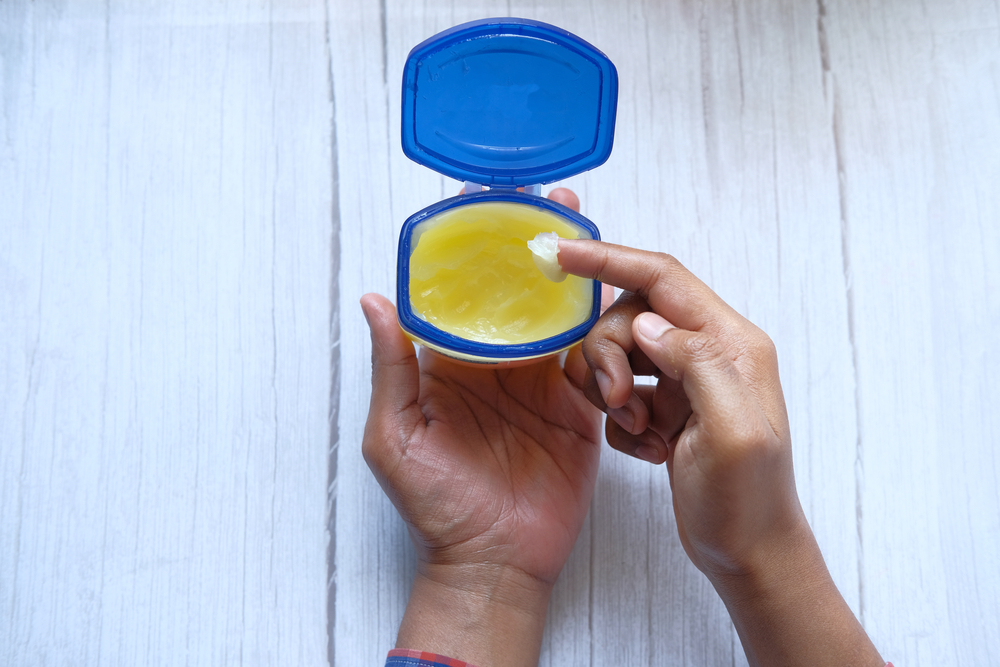

Final Thoughts
Hairballs can be hard to pass for your cat, but don’t just watch them struggle! Give them a good brushing, review their diet and habits to help reduce the incidence of hairballs, and consider having your vet help you decide how to use the options presented here to help prevent hairball formation in your cat.
Featured Image Credit: 99mimimi, Pixabay
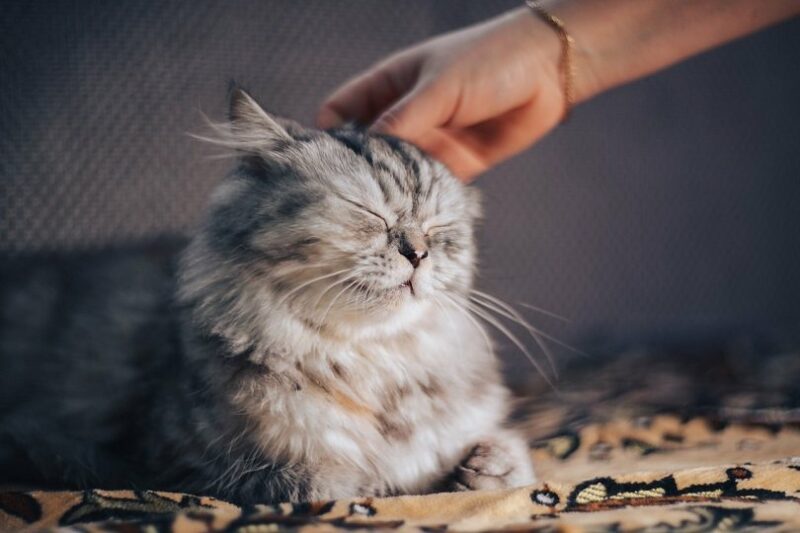


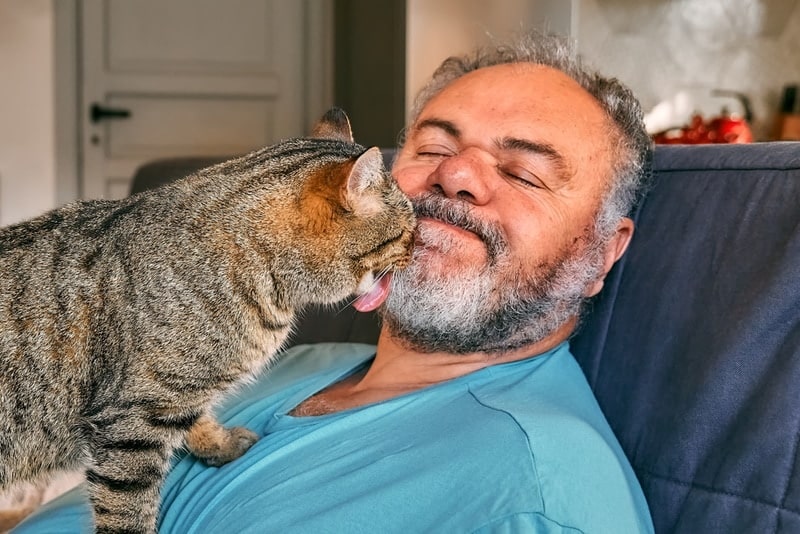


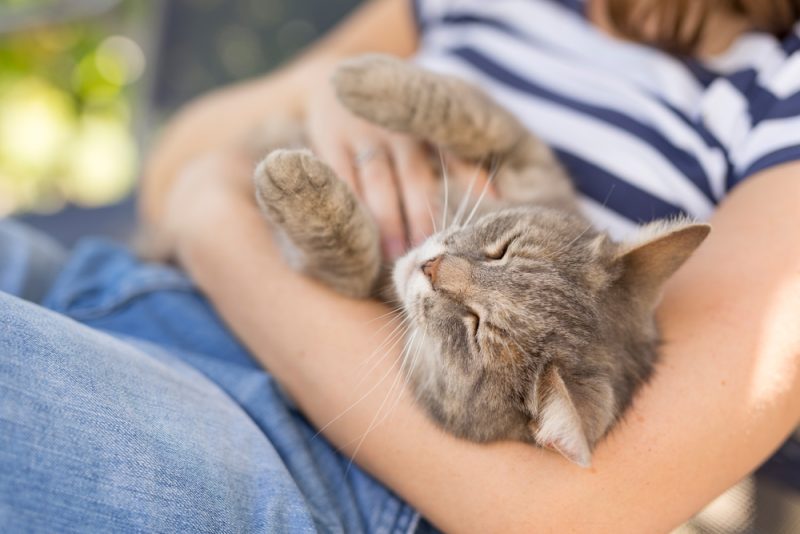
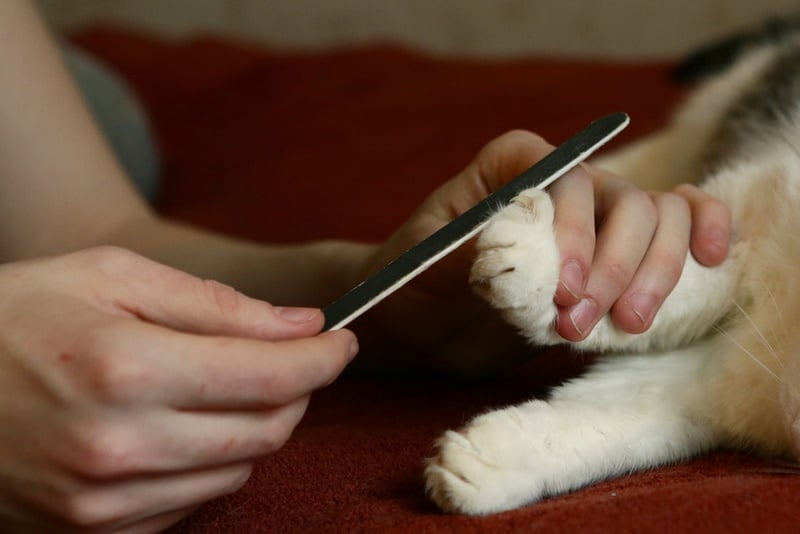
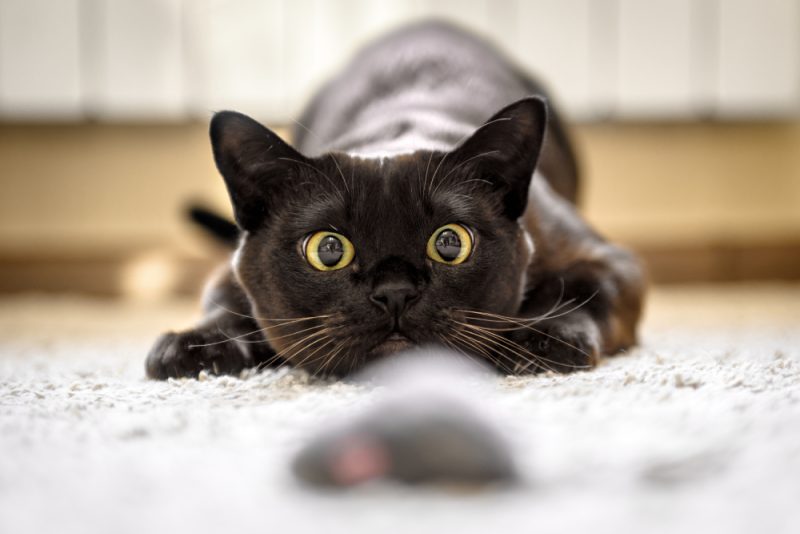
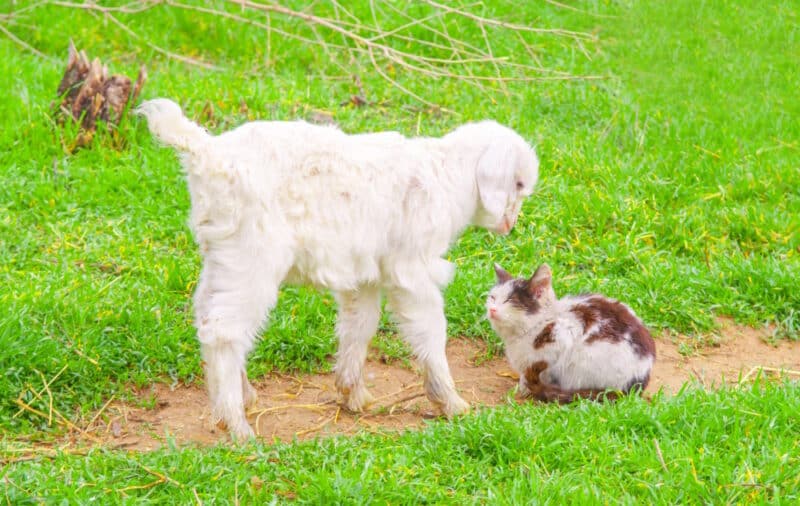
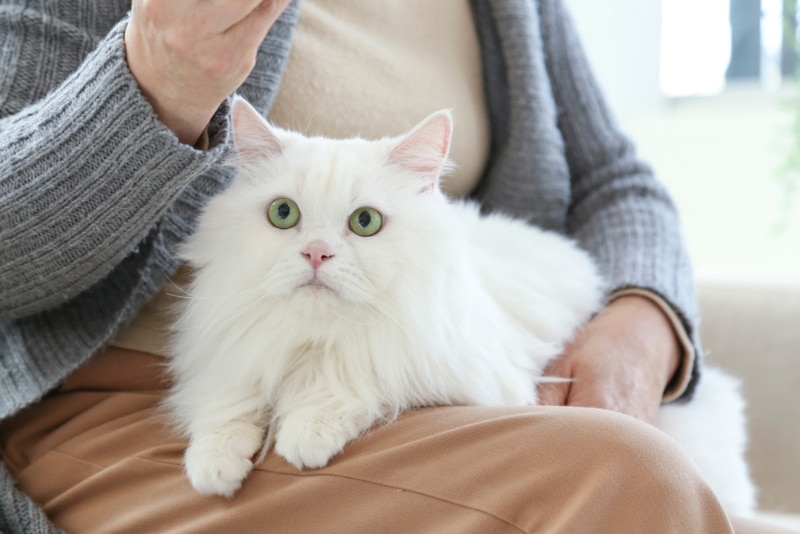
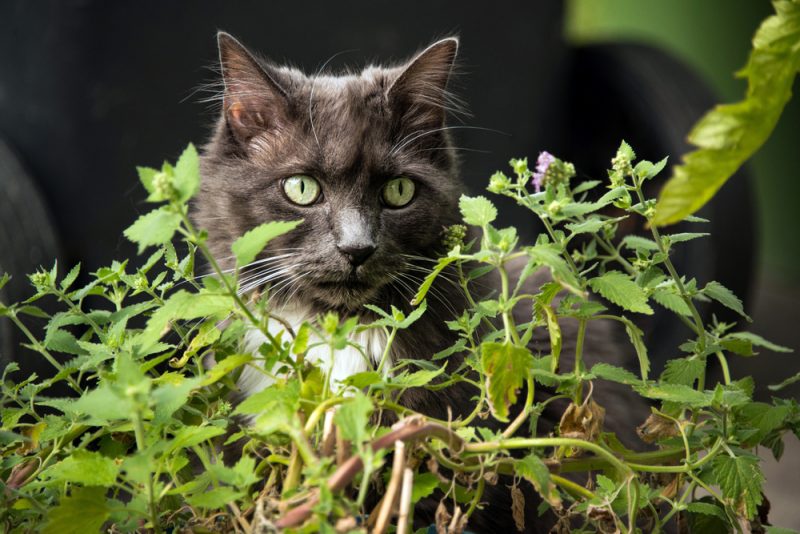
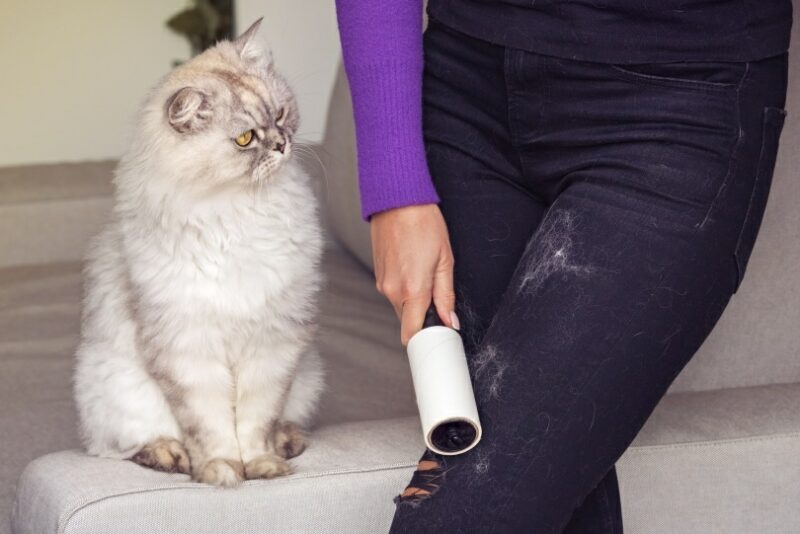
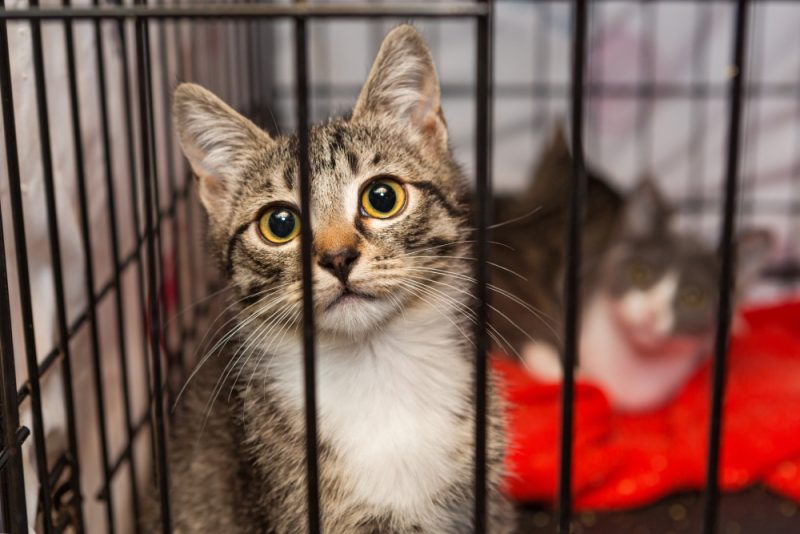
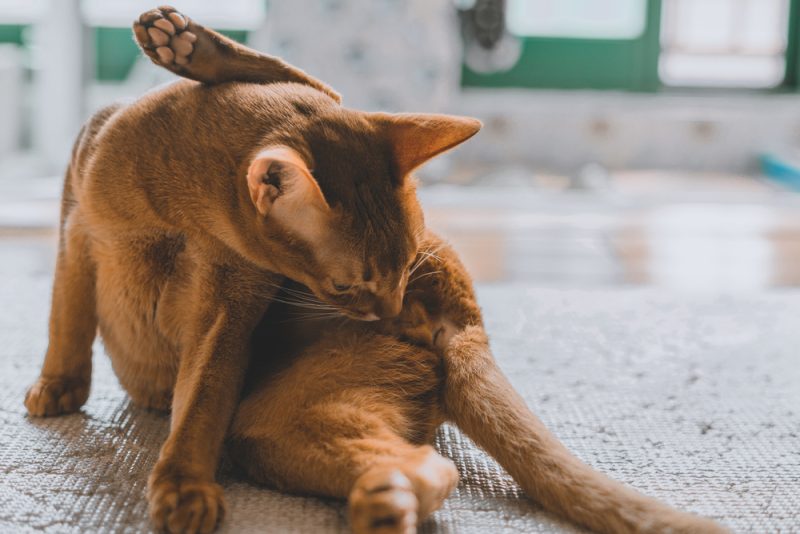

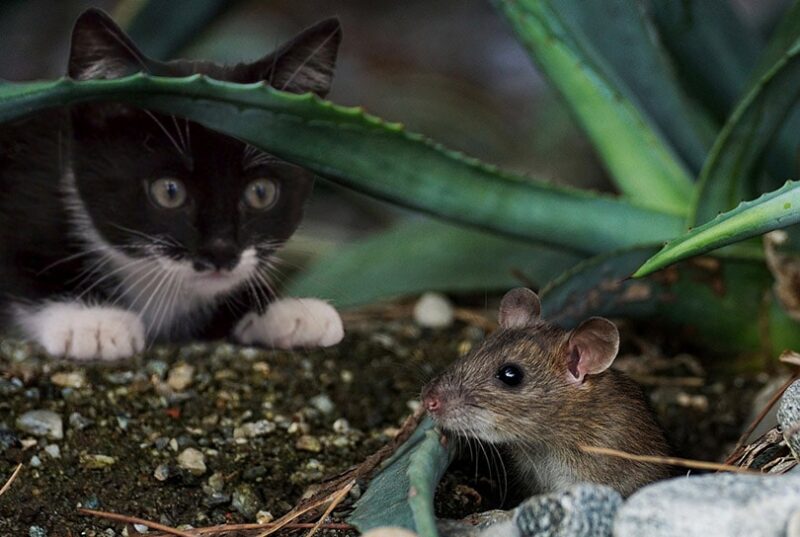





10 Responses
does D E kills worms in cats and dogs ? Diatamaceous Earth.
Hello Bo,
Thank you for your question. Diatomaceous Earth indeed has some insecticide properties and food-grade diatomaceous earth is safe for cats to eat, however before starting this treatment, or adding DE into your cat's diet, it is recommended to consult this with a veterinarian.
Our veterinarians from PangoVet.com will gladly make a video-call with you and talk through your cat's issues and potential dietary additions.
I adopted a 4 month old kitten who had undergone amputation of her right foreleg. She is now 6 months old and is amazingly athletic and active. I worry that there is now too much stress being placed on her left front leg; is there anything I should be aware of? Thank you!
Hi Beth, Thanks for reading us. Cats are incredibly resilient and can easily adapt to live a “normal” life with 3 legs. It is however always a good idea to keep them in good shape and avoid them being overweight. Get them periodically checked by a veterinarian just to ensure everything is under control. Here there is a post with some helpful information and advice for you: How to Care For a Three-Legged Cat: Expert Tips & Advice-https://www.catster.com/cat-health-care/how-to-care-for-a-three-legged-cat/
Thanks to the Catster Editorial Team for providing helpful information about three-legged cats. I want to do the best I can for my new girl! Beth
Our pleasure! Thanks for loving her!
Hi Marilyn,
I forgot to ask, can I use a small (or VERY small) amount of psyllium powder if I increase the amount of water in his diet?
Wondering if using Unpetroleum Jelly and/or mineral oil can be useful for hairball treatments?
Also, I understand that the cause of feline hyperesthesia is idiopathic, however I have noticed that my cat had some symptoms last night, and this morning he left me a beautiful sample of scat/hairball dragged onto my carpet. I am wondering what your thoughts are, and do you think it possible that constipation was the likely culprit of the hyperesthesia. I will be watching him carefully this evening to see if there is any change in his behavior. I have noticed that he is prone to the hyperesthesia in the evenings only, and inconsistently. This is the first time I have seen something that I think can be correlated to the hyperesthesia, previously I thought he had fleas (which he did not). Thank you for your help and insight. Regards
Hello Thor,
thank you for your questions. We've put both of your comments into one so we could answer them with one reply, hope you don't mind.
Generally it is alright to use very small amount of psyllium powder with simultaneous increase of water intake.
However, to answer all your other questions about Unpetroleum Jelly, mineral oil, hyperesthesia and constipation, we would like to suggest you book a video-call appointment with one of our veterinarians at www.PangoVet.com. They will be happy to consult and answer all your questions.
Have a great day.
Thank you for the hairball remedies. I brush my kitty but maybe not enough. I will begin regular brushing this week. Also, the
tiny bit of Petroleum Jelly on his paw and the 1/2 raw egg yolk mixed in his food are good ideas.
Hi Marilyn,
Thank you so much for your kind comment. We are glad to hear that the hairball remedies have been helpful for you. If you have any more questions or need further advice, feel free to reach out.
We’re always here to help!
Best regards